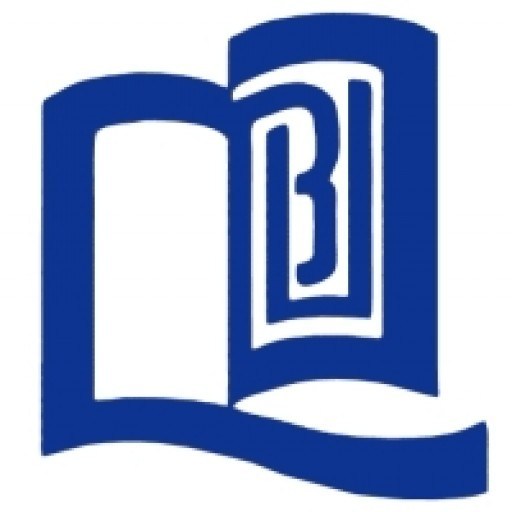Photos of university / #hkbaptistu
Program description:
The Bachelor of Arts in International Journalism Studies at Hong Kong Baptist University offers students a comprehensive education in the principles and practices of modern journalism within an international context. This program is designed to equip students with the essential skills needed to succeed in the fast-paced and ever-changing media industry worldwide. Students will learn about media ethics, journalism theories, news writing, media law, multimedia storytelling, and digital journalism technologies. The curriculum emphasizes a global perspective, encouraging students to understand diverse cultural, social, and political environments, which are integral to international journalism. Throughout the program, students will have opportunities for practical training through internships and collaborative projects with local and international media organizations. The program also promotes critical thinking, investigative skills, and multimedia competencies necessary for reporting in television, radio, print, and digital platforms. Graduates of this program will be prepared for careers in international news organizations, broadcasting companies, online media outlets, public relations firms, and other communication sectors. The program is taught by experienced faculty members who are active researchers and practitioners in the field of journalism and media studies. With a strong emphasis on ethical standards and responsible reporting, the Bachelor of Arts in International Journalism Studies aims to nurture skilled, ethical, and socially responsible journalists capable of making meaningful contributions to global information dissemination.
| Core Courses (for International Journalism) | 15 units |
| International Relations Theory and Practices* | 3 units |
| Comparative & International News* | 3 units |
| Multimedia Journalism | 3 units |
| Newsgathering for International Practice | 3 units |
| News and Feature Writing | 3 units |
| Advanced News Writing and Production for International Practice | 3 units |
| Core Courses (for Business and Financial Journalism) | 18 units |
| International Relations Theory and Practices* | 3 units |
| Comparative & International News* | 3 units |
| News and Feature Writing | 3 units |
| Business News Writing | 3 units |
| Principles of Economics | 3 units |
| Business and Finance | 3 units |
| Advanced Business News Writing and Production | 3 units |
Academic Qualification
Applicants should:
- hold a bachelor’s degree from a recognised university or comparable institution; or
- have at least seven years’ experience as a journalist or in another related profession that, in the view of the Department, constitutes a level equivalent to a first degree in courses relevant to the MA programme, and must show evidence of academic aptitude and achievement.
Language Proficiency Requirement
Applicants should be able to communicate in English at an advanced level, possessing one or more of the following qualifications:
- a minimum score of 550 (paper-based) or 79 (internet-based) in TOEFL; or
- a band score of 6.5 or above in IELTS; or
- an equivalent qualification.
Others
Applicants should submit a 500-word self-statement in English outlining their academic interests and objectives, or a sample of a piece of journalism or research paper or similar work written by the applicant in English.
The Government offers financial assistance in the form of non-means-tested loan to all students. The beneficiaries are expected to repay their loans within a specified period after graduation.
Scholarships are bestowed upon selected recipients including new students on the basis of academic merits and other criteria stipulated by the donors.
The International Journalism Studies program at Hong Kong Baptist University is a comprehensive undergraduate degree designed to prepare students for careers in global journalism and media industries. The program emphasizes the development of strong reporting, writing, editing, and multimedia skills, alongside a solid understanding of media ethics, media law, and the role of journalism in society. It offers students the opportunity to explore various aspects of journalism, including broadcast, print, and online media, to ensure they are versatile and adaptable in a rapidly changing media landscape.
Students undertake coursework that combines theoretical knowledge with practical training, often involving hands-on projects, internships, and collaborations with international media organizations. The curriculum covers key topics such as media professionalism, cross-cultural communication, global media systems, digital journalism, investigative reporting, and data journalism. Emphasis is placed on fostering critical thinking, ethical reporting, and the ability to analyze complex issues from multiple perspectives.
The program also aims to cultivate an understanding of the socio-political contexts affecting journalism worldwide, encouraging students to develop a global outlook while appreciating local media dynamics within Hong Kong and greater China. Students benefit from dedicated journalism laboratories, multimedia production facilities, and access to industry experts through guest lectures and workshops.
Hong Kong Baptist University’s strategic location provides a unique vantage point for studying East-West media interactions, and the program encourages international exchanges and collaborative projects with universities and media institutions abroad. Graduates of the program are well-equipped to pursue careers in international news organizations, broadcast stations, digital media companies, public relations firms, and further postgraduate studies in journalism or related fields. The program aims to produce ethical, innovative, and socially responsible journalists capable of making meaningful contributions in a diverse and interconnected global media environment.









